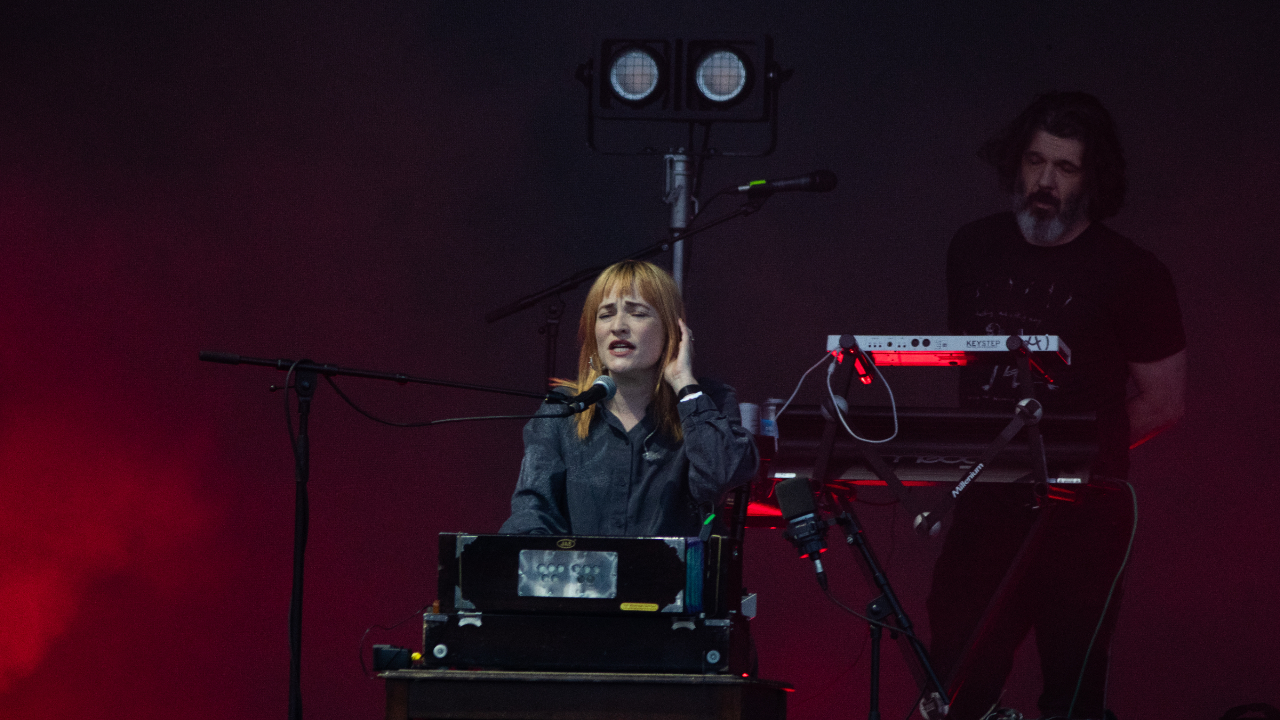A black cloud makes its way across Glastonbury Festival’s Park stage - though today it’s a metaphorical one, for the bleakness that Dublin folk group Lankum bring feels entirely out of place in the current setting of gleaming sun that shines its way in a cheery halo around the area. In similar spirit, the band’s performance is one of polarity; great despair and intense joy, ebullient jigs and dismal doom. And in a word, the experience is spectacular.
After welcoming their crowd of “sexy weirdos” - the band are continually warm and witty - Lankum creep into their ten-minute cover of traditional folk song The Wild Rover from 2019’s The Livelong Day. The crowd are eerily silent (which is impressive, for this commonly chatty Glastonbury lot) as strings build into a see-sawing, foreboding melody to frontwoman Radie Peat’s bewitching voice, who is soon joined by the rest of her band - Ian Lynch, Daragh Lynch and Cormac MacDiarmada - in haunting harmony. Then, the strings bend, aching and swelling all the more into chasm-deep wells of dread. Lankum’s sense of doom is both disturbing yet euphoric, a tragic, glorious rebirth of the senses that finds its way into each of their following songs.
Tears flow freely from the audience during The Rocks of Palestine - a stunning acapella rewrite of Arcady’s The Rocks of Bawn to feature lyrics about the ongoing tragedy in Gaza. ‘Free Palestine’ chants commence, before Peat remarks her delight over seeing so many Palestine flags and keffiyeh’s in the audience. Then, she dryly quips: “Good luck to the BBC for editing that one out!’.
At the end of The Pride of Petravore, another folk reimagining that gives the original more of a discordant, piratical edge, they sign off with a passage of Sting’s We Work The Black Seam. Ian then declares with a wicked grin how The Police legend is a big fan of their work, putting on his best impression as he recalls how he once described Lankum as “fucking deadly”.
Elsewhere, they dip into the traditional Irish songbook again with The Rocky Road To Dublin, their layers of vocal harmony lacing in a soul-stirring, uplifting blend. Not only does this moment feel out of place in the surrounding weather, but also out of time - a mesmerising journey back to dark, rain-beaten nights in Ireland centuries ago.
Images of grisly landscapes echo in the mind later for the closing Go Dig My Grave from 2023’s Mercury Award-nominated False Lankum, its overwhelming cacophony bleeding out into the best folk horror soundtrack never written. As they finish, the tense shoulders and held-breaths of the crowd give out into roaring, satiated applause, and the momentarily, oh-so-deliciously dark corner of Glastonbury returns to its former, now somewhat more ordinary light.
- How to rewatch Glastonbury 2024: No matter where you are

